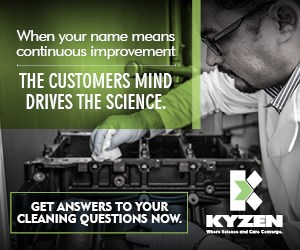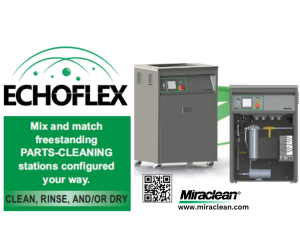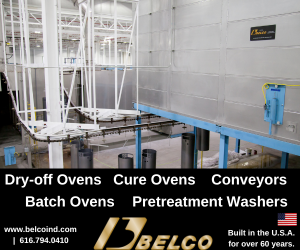Electrocleaning
Why do we have problems with cleaning in low-current areas on our barrel alkaline zinc plater?
Q. We have a barrel alkaline zinc plater and have had problems with cleaning in the low-current areas. Our process has two soak cleans, an HCL acid rinse and then an electrode clean. We have better results with the electrode clean current off than with it on. We have checked the current and it is reversed. Why is this?—D.P.
A. Since you do not mention the polarity or type of electrocleaning, I am not sure what you mean by saying that the current is reversed. There are two categories of electrocleaning. The more popular type is anodic or reverse-current electrocleaning, since it is actually dissolving some amount of the base material, avoids the deposition of other metallic substrates on the surface and also avoids hydrogen generation at the surface that can lead to hydrogen embrittlement of higher-strength steels.
Cathodic or direct-current electrocleaning has the advantage of generating twice as much hydrogen at the surface as the amount of oxygen generated from the anodic process. As mentioned, it also has the disadvantage of “plating” bath impurities onto the surface and requiring that higher-strength steels have a one-hour bake to avoid hydrogen embrittlement.
Based on the problem you are experiencing, you may be performing the cathodic process on your parts and they are either getting passivated from this process and/or having some deposits form on the surface that gives the appearance that it is worse than cleaning without current at all. I recommend you attempt to change the current direction to perform an anodic cleaning, which will hopefully yield improved results. An alternative would be mixing the processes into what is known as periodic reverse electrocleaning. In this case, you will alternate applying cathodic and anodic electrocleaning. It is typical to end the process with the anodic or reverse electrocleaning process for the advantages listed above.
Related Content
-
Top Reasons to Switch to a Better Cleaning Fluid
Venesia Hurtubise from MicroCare says switching to the new modern cleaning fluids will have a positive impact on your cleaning process.
-
Advantages to Pumped Eductor Agitation
Not all agitation methods are created equally. Pumped agitation with eductor nozzles can improve process tanks and quickly show a reduction in operating costs while keeping staff safe, following environmental legislation and preventing pollution.
-
Replacing Open-Top Vapor Degreasing in Aerospace Manufacturing
Options and considerations for cleaning aerospace parts as regulations tighten on vapor degreasing solvents.













